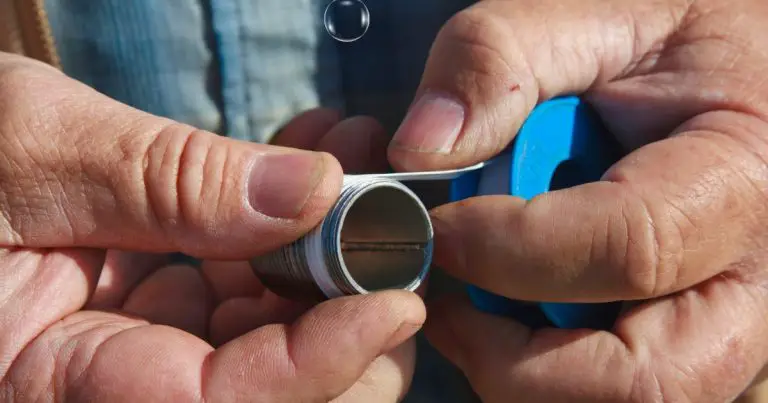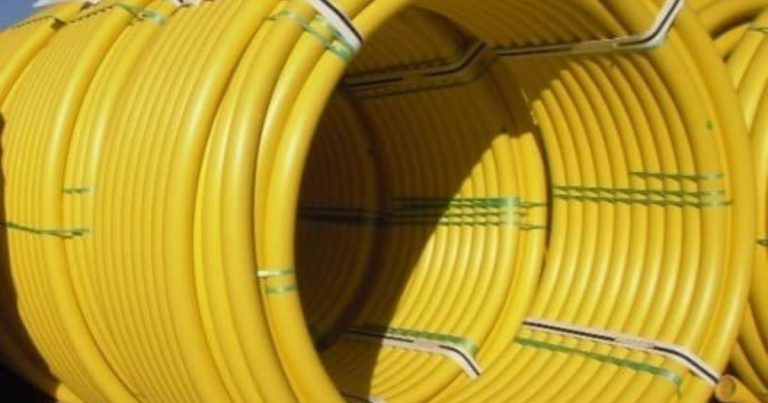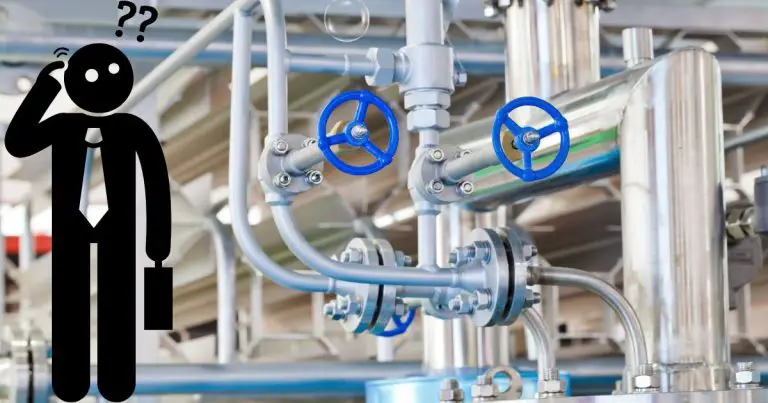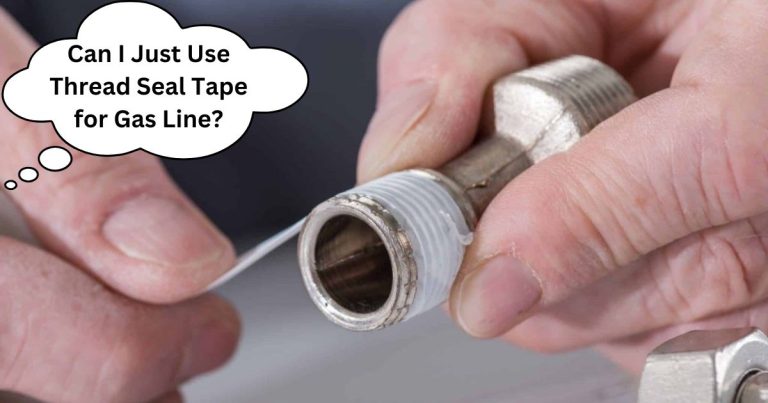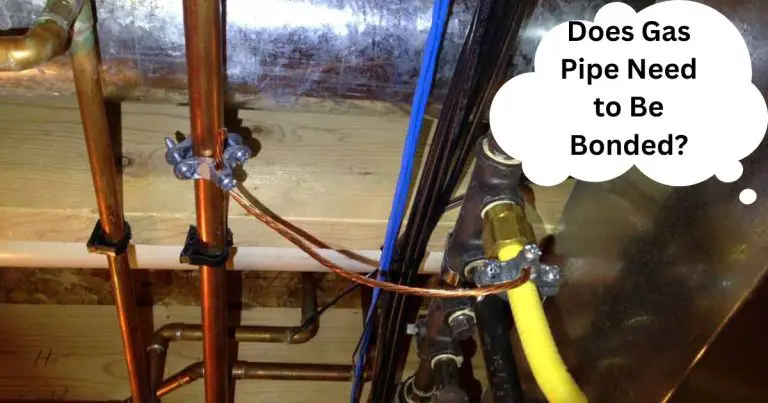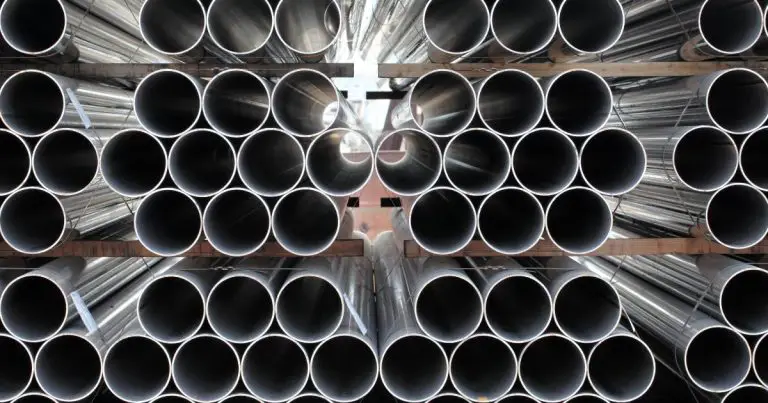Why Do Gas Pipes Rust? (EXPLAINED!)
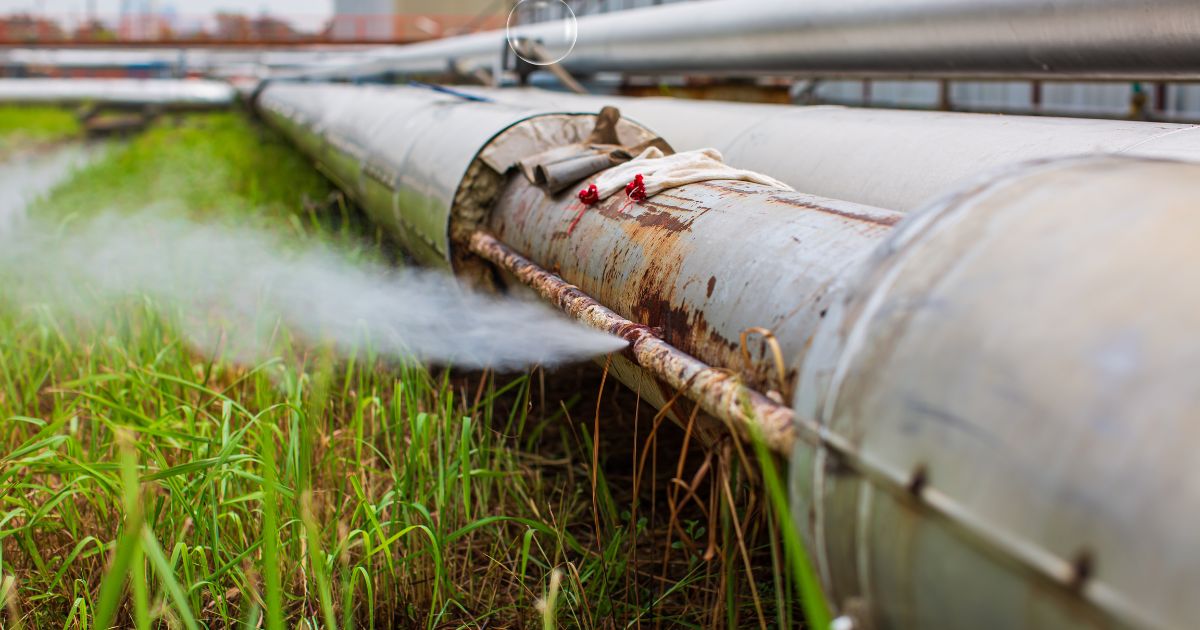
Gas pipes are an essential part of any home or business.
They’re responsible for safely delivering natural gas to heat and power your appliances.
But unfortunately, gas pipes are also susceptible to rusting over time.
Rusting can be a major problem as it can lead to leaks, blockages, and other dangerous issues. So why do these pipes rust?
Why Do Gas Pipes Rust?
Gas pipes are susceptible to rusting due to their exposure to moisture and oxygen. Rusting occurs when iron molecules in the pipes react with oxygen and water to form iron oxide, which is a reddish-brown substance. This reaction is accelerated by the presence of salt, which is often found in the air near coastal areas. Rusting can cause the pipes to become weak and brittle, leading to leaks and other problems. To prevent rusting, gas pipes should be regularly inspected and maintained, and any rust should be removed as soon as possible.
How long does a gas pipe last?
Gas pipes are an important part of any home or business, providing a safe and reliable way to transport natural gas.
But how long do gas pipes last?
The answer depends on a variety of factors, including the type of pipe, the environment it is in, and the amount of maintenance it receives.
Generally, gas pipes can last anywhere from 20 to 50 years, depending on the type of pipe and the environment it is in.
For example, plastic pipes tend to last longer than metal pipes, and pipes in dry climates tend to last longer than those in wet climates.
Additionally, regular maintenance and inspections can help extend the life of a gas pipe.
This includes checking for corrosion, leaks, and other signs of wear and tear.
If any of these issues are found, they should be addressed immediately to prevent further damage.
With proper maintenance and regular inspections, gas pipes can last for many years, providing a safe and reliable way to transport natural gas.
What Causes Gas Pipes to Rust?
There are few reasons:
1: Exposure to moisture or water.
2: Corrosion from acidic gases in the air.
3: Poor installation or maintenance.
4: Inadequate protection from the elements.
5: Lack of proper coating or rust inhibitors.
6: Unstable pipe materials (e.g., galvanized steel).
7: Old age and deterioration of the pipes over time.
The Dangers of Rust in Gas Pipes?
1. Gas Leaks:
Rust can cause small holes to form in the pipes, leading to gas leaks and potentially hazardous scenarios.
2. Fire Hazards:
If rust accumulates near an open flame, it can start a fire that can spread quickly and cause significant damage.
3. Corrosion of Metal Parts:
Rust can corrode metal parts, leading to malfunctions and potentially dangerous safety issues.
4. Damage to Appliances:
Rust buildup in gas pipes can damage appliances due to the pressure increase or clogs that form from the corrosion.
5. Health Risks:
Exposure to rust particles and gas fumes from rust-damaged pipes can be dangerous for your health.
6. Increased Costs:
Rust-related damage can increase the cost of repairs and replacements, both in terms of materials and labor.
7. Reduced Efficiency:
Gas pipes that are in poor condition may not be able to deliver gas as efficiently as they should, leading to decreased energy output.
The presence of rust on any metallic part can potentially bring about a host of problems.
For instance, its presence could cause an item to become brittle and susceptible to fracture under extreme conditions such as high temperatures or electrical shock.
Furthermore, if the integrity of a gas pipe is compromised – e.g. by rupture or puncture – then it may lead to leaks which pose serious threats!
Not only does corrosion pose a significant risk to your home; it’s also a potential hazard for anyone who comes in contact with it.
For example, when you’re using a faucet that’s been exposed to this corrosive agent, it could result in injury such as scalding hot water seeping into one’s skin while showering; or perhaps even more substantial injuries should the water be contaminated with citric acid-based cleaners!
How to Prevent Gas Pipes from Rusting?
There’s no one-size-fits-all answer to this question, as the best way to prevent rusting will vary depending on the specific circumstances.
However, a few key tips include:
1: Regularly checking for signs of corrosion.
2: Installing protective coatings where necessary.
3: Maintaining an adequate ventilation system.
4: Regularly cleaning and inspecting pipes and fixtures.
5: Keeping your appliances and equipmentwell-maintained.
6: Regularly inspecting and replacing aging parts.
7: Installing an anti-corrosiondevicewhere necessary.
How to Identify and Repair Rust in Gas Pipes?
1: Inspect the gas pipes for signs of rust. Look for discoloration, flaking, or any other signs of corrosion.
2: Clean the affected area with a wire brush or sandpaper to remove any loose rust.
3: Apply a rust-inhibitor to the area to prevent further corrosion.
4: Use a patching compound or sealant to patch up any holes or cracks in the pipe. Make sure to use a product designed specifically for gas pipes.
5: Wrap the pipe with an insulation material such as fiberglass tape, heat shrink tubing, or rubberized tape.
This will help protect it from further corrosion and damage.
6: Test the repaired area with an infra-red camera or other non
The Benefits of Regular Maintenance to Prevent Gas Pipe Rust:
Regular maintenance can prevent the onset of gas pipe rusting.
Preventive measures include:
1) Maintaining your plumbing system with regular inspection and maintenance.
2) Regularly scraping away any trapped sediment within your water line.
3) Ensuring that all connections between pipes are secure; this includes those in underground installations too!
4) Cleaning all parts of your plumbing system with a suitable rust-inhibitor.
5) Using a corrosion-resistant sealant on any exposed pipes.
The Impact of Rust on Gas Pipe Performance and Safety?
When the rust is unapparent, it may be assumed that corrosion does not pose an issue.
However, its presence can potentially undermine structural integrity and efficiency within a gas pipe system.
This can lead to the leakage of gas, and in some cases, even fire.
Therefore, it is important to take action when you notice any signs of corrosion.
Using my experience as a municipal engineer, I have seen firsthand how faulty pipes can lead to leaks and even fires.
In addition, these issues can severely compromise one’s safety in their abode.
As such, proper care must be taken when assessing degradation patterns on any given gas pipe!
How to Protect Gas Pipes from Rust and Corrosion?
If you want to protect your gas pipes from rust and corrosion,
Here are some practical tips:
1: Keep the pipes clean and free of debris
2: Regularly inspect pipes for signs of corrosion or rust
3: Apply a protective coating to pipes to protect them from the elements
4: Utilize a cathodic protection system to reduce corrosion on metal pipes
5: Use non-metallic piping materials when possible, such as PVC, ABS, or HDPE.
6: Install a water softener system to reduce the acidity of water that comes in contact with the pipes.
7: Add an oxygen-scavenging agent to the water system to reduce corrosion.
If you want to protect your gas pipes from rust and corrosion, here are some practical tips:
Ensure that the outer surface of the pipe remains dry at all times.
To avoid condensation forming on its exterior, it is prudent to ensure that there are no leaks in the vicinity; rather than opting for an abatement solution like epoxy coating, consider sealing punctures or openings with flexible duct tape.
Make sure that your installation does not come in contact with soil or other liquids.
Avoid using concrete or asphalt pavers to lay down paving stones if possible; instead use gravel for optimal traction!
Ever since the emergence of gas utilities in the early 1900s, there have been several factors contributing to its widespread use.
One of these is that it is relatively inexpensive; conversely, the more costly option of creating power through alternative means such as wind turbines or solar panels remains unattractive due to their exorbitant costs.
It can be a lengthy process to extract even the most basic materials from Earth’s crust – yet extracting fuel from crude oil requires no effort at all!
Due to this process being so simple and effortless, one must ask why gas pipes tend to succumb to corrosion.
This article will reveal the primary causes of rusting occurring in gas pipes, along with some practical tips for averting it from happening.
Conclusion:
Gas pipes can be susceptible to corrosion, but it doesn’t necessarily mean that they pose any danger.
In fact, the vast majority of leaks are minor and can be remedied easily by contacting your local gas company or taking steps yourself such as covering the plastic with a metal cap to prevent further deterioration.
If there is an issue with your gas line then it’s best to contact an expert for guidance so let them know if anything has changed!

